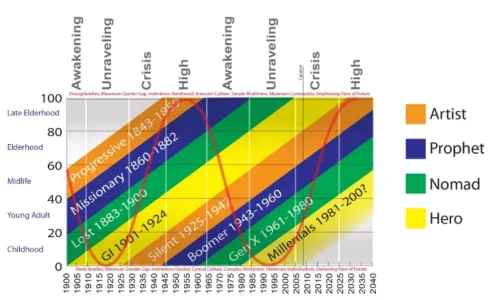TomasM
Community Member
- MBTI
- INFJ
Google Search Trends for MBTI search
2004 - Nov. 2024

2010s - Increase in personality interest due to online assessments
2016 - Publication of MBTI type frequencies
2016 - Study published that found MBTI had no correlation with leadership behaviors.
2020 - Article, “In Defense of the Myers-Briggs,” presents a counterargument. The author, a personality researcher, cites hundreds of published studies that support the MBTI’s validity and reliability. They argue that the test is on par with the well-respected Big Five personality traits and has a foundation in psychological theory and clinical practice.
During the increase in interest and awareness of personality in the early 2010's there was a corresponding interest in the Big 5 Personality, with it being considered, "more scientifically valid." There was also an increased interest in how the Big 5 model could be used in various fields like psychology, education, employment, and marketability. Simultaneously, MBTI was being challenged with respect to its validity scientifically.
This tells me that initially people wanted to understand who and how they were, which caught the interest of special interest groups that wanted to use it as a means to leverage people in a variety of ways.
Then when a defense of MBTI was published in 2020 there seemed to be a somewhat renewed confidence or interest in the model. Still, I can't help but wonder if the leveraging of personality in special interests has influenced people away from the disclosure of the MBTI types and corresponding dialogue. I have also had this feeling that there is a growth of paranoia with disclosure online out of distrust in the use of the information by Big Tech / Big Data [that may be using the information in a way that is potentially harmful to the individual]. This could even be intensifying with the onset of artificial intelligence.
At the same time, I feel certain that there is an overall distrust in general, with respect to Covid, politics, big business, geopolitical issues, and inflation, and has created a growing concern for self preservation and survival.
As an INFJ this does not make me less interested in speaking with others like me, in fact it is just the opposite. My feeling is that we have our finger on the pulse of society and offer something in the way of insight and action. Similarly, the group setting offers a sounding board that validates what we feel is happening and breeds confidence with feedback. The same could be said for all highly intuitive types.
Does any of this seem to resonate with any of you?
2004 - Nov. 2024

2010s - Increase in personality interest due to online assessments
2016 - Publication of MBTI type frequencies
2016 - Study published that found MBTI had no correlation with leadership behaviors.
2020 - Article, “In Defense of the Myers-Briggs,” presents a counterargument. The author, a personality researcher, cites hundreds of published studies that support the MBTI’s validity and reliability. They argue that the test is on par with the well-respected Big Five personality traits and has a foundation in psychological theory and clinical practice.
During the increase in interest and awareness of personality in the early 2010's there was a corresponding interest in the Big 5 Personality, with it being considered, "more scientifically valid." There was also an increased interest in how the Big 5 model could be used in various fields like psychology, education, employment, and marketability. Simultaneously, MBTI was being challenged with respect to its validity scientifically.
This tells me that initially people wanted to understand who and how they were, which caught the interest of special interest groups that wanted to use it as a means to leverage people in a variety of ways.
Then when a defense of MBTI was published in 2020 there seemed to be a somewhat renewed confidence or interest in the model. Still, I can't help but wonder if the leveraging of personality in special interests has influenced people away from the disclosure of the MBTI types and corresponding dialogue. I have also had this feeling that there is a growth of paranoia with disclosure online out of distrust in the use of the information by Big Tech / Big Data [that may be using the information in a way that is potentially harmful to the individual]. This could even be intensifying with the onset of artificial intelligence.
At the same time, I feel certain that there is an overall distrust in general, with respect to Covid, politics, big business, geopolitical issues, and inflation, and has created a growing concern for self preservation and survival.
As an INFJ this does not make me less interested in speaking with others like me, in fact it is just the opposite. My feeling is that we have our finger on the pulse of society and offer something in the way of insight and action. Similarly, the group setting offers a sounding board that validates what we feel is happening and breeds confidence with feedback. The same could be said for all highly intuitive types.
Does any of this seem to resonate with any of you?
Last edited:

